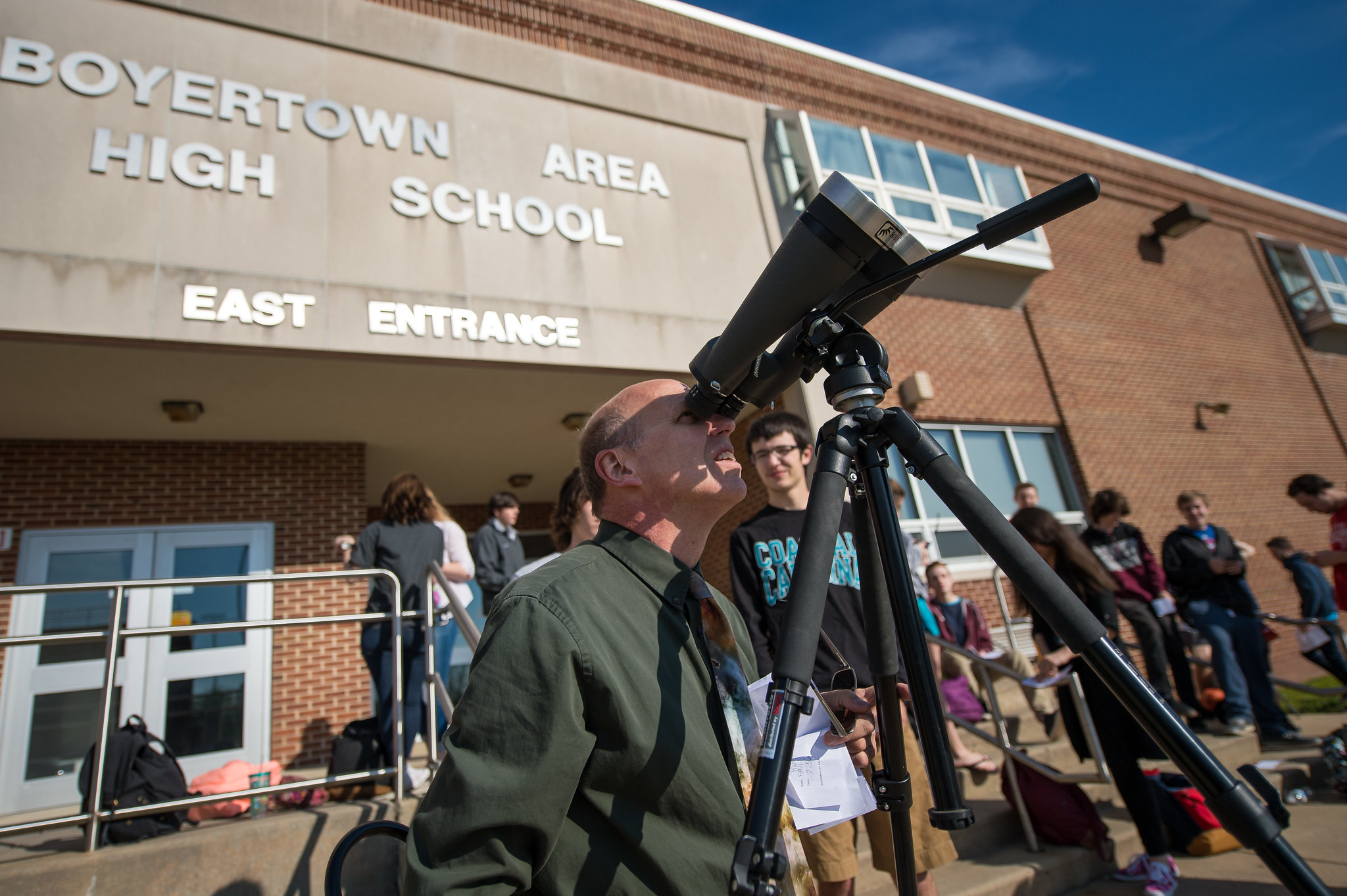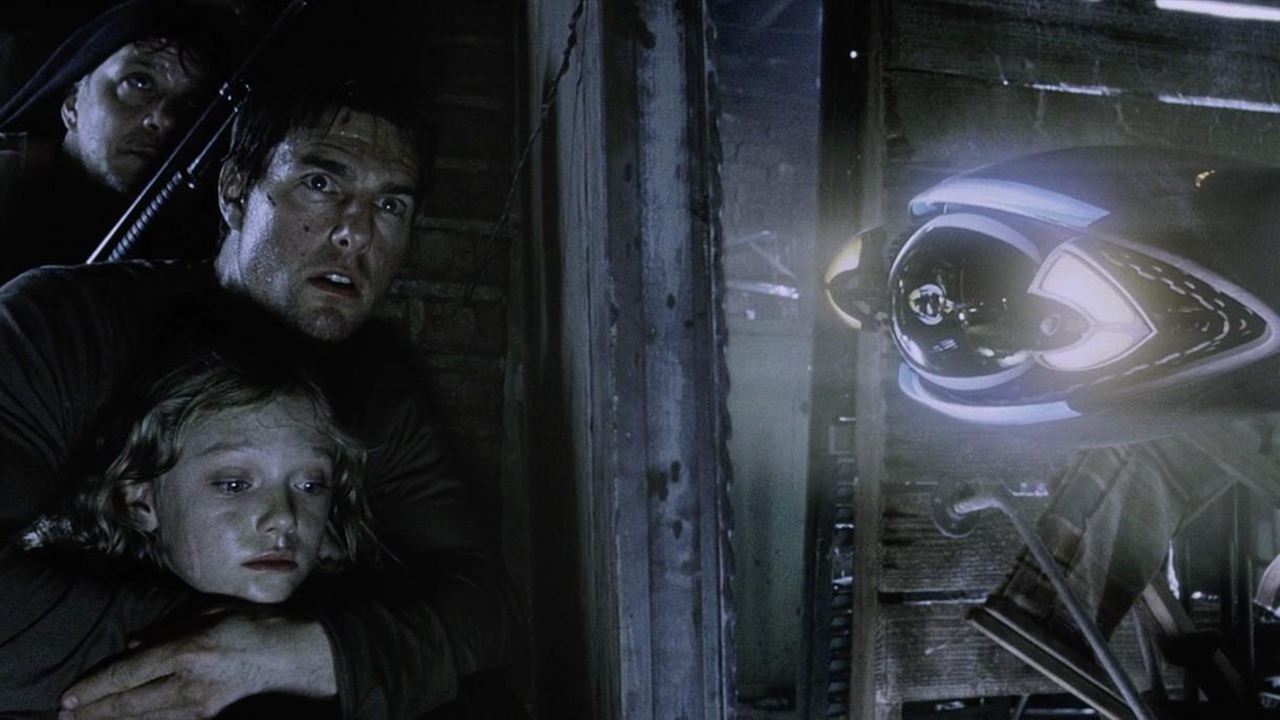Mercury Transit 2019: How to Find an Event Near You
If you want to watch the Mercury transit but don't have the proper equipment, you can still find a viewing event near you. Here's how:
Mercury will skid across the sun (from Earth's perspective) on Monday (Nov. 11) for the last time until 2032. The planet is small and impossible to see without a telescope or binoculars, and you need special solar filters to look at the sun safely. (Do not use any unprotected equipment — such as a telescope, binoculars or your naked eyes — to gaze at the sun).
Related: Mercury Transit on Monday: The Gear You Need to Watch It Safely
There are a bunch of safe ways to view the event with no sweat, including in-person events if the weather is clear. Or check out online events in case there are clouds or you can't get to an in-person event in time. The transit starts at 7:34 a.m. EST (1234 GMT), and Mercury will be viewable in at least a few spots online during its 5.5-hour journey across the sun:
- NASA's orbiting Solar Dynamics Observatory will start broadcasting around 7 a.m. EST (1200 GMT) at this website. Viewers will be able to observe the transit in almost real time, with images including a full-disk view of the sun and several zoomed-in views of Mercury. The astronomy service Slooh will broadcast from its observatory at the Institute of Astrophysics of the Canary Islands, starting at 7:30 a.m. EST (1230 GMT).
- The Virtual Telescope Project, which typically broadcasts from Rome, will also start its livestream at 7:30 a.m. EST (1230 GMT).

You can also catch local events across the United States using this master list of Mercury transit events provided by NASA. Type the name "Mercury" into the "event name contains" box to see the full list.
Some of the events include:
- A viewing party from the Los Angeles Astronomical Society at Mount Wilson Observatory in La Cañada, California. "Get up early and come up the mountain to view the event safely with one of the observatory’s solar telescopes," the society said in a statement. "The transit will be in progress at sunrise (6:21 a.m.) and will end around 10:00 a.m. We will have coffee!"
- The Central Florida Astronomical Society will hold an event at Seminole State College in Sanford, Florida, roughly 1 hour north of Orlando, Florida. "Solar telescopes will be set up to allow visitors to observe this event safely," the society said in a statement, adding that a livestream link will be available shortly for those interested in peering at the transit online.
- The Shenandoah Astronomical Society will hold an event at Lord Fairfax Community College (LFCC) in Middletown, Virginia, about 90 minutes west of Washington, D.C. "Club members will set up telescopes on the LFCC campus, next to the Student Union Building, for students, faculty and staff to observe the silhouette of Mercury as it crosses across the face of the sun," the society said.
- The Amateur Astronomers Association of New York (AAA) will set up viewing stations in each of the five boroughs of New York City. "Volunteer observers from the Amateur Astronomers Association will help you safely view the transit of Mercury," the AAA said in its event description. New Yorkers can also visit the American Museum of Natural History to observe the transit; public observation areas will be set up outside the museum's Central Park West entrance.
If you catch the Mercury transit online or in person, visit NASA's site to print out a certificate; you'll also find some tips for viewing the event safely.
Breaking space news, the latest updates on rocket launches, skywatching events and more!
Editor's note: Visit Space.com on Monday to see live webcast views of the rare Mercury transit from Earth and space and for complete coverage of the celestial event. If you SAFELY capture a photo of the transit of Mercury and would like to share it with Space.com and our news partners for a story or gallery, you can send images and comments in to managing editor Tariq Malik at spacephotos@space.com.
- Mercury Transit 2019: Here's Why This Celestial Event Is So Rare
- The Mercury Transit of 2016 in Amazing Photos
- How to Safely Observe the Sun (Infographic)
Follow Elizabeth Howell on Twitter @howellspace. Follow us on Twitter @Spacedotcom and on Facebook.

Join our Space Forums to keep talking space on the latest missions, night sky and more! And if you have a news tip, correction or comment, let us know at: community@space.com.

Elizabeth Howell (she/her), Ph.D., was a staff writer in the spaceflight channel between 2022 and 2024 specializing in Canadian space news. She was contributing writer for Space.com for 10 years from 2012 to 2024. Elizabeth's reporting includes multiple exclusives with the White House, leading world coverage about a lost-and-found space tomato on the International Space Station, witnessing five human spaceflight launches on two continents, flying parabolic, working inside a spacesuit, and participating in a simulated Mars mission. Her latest book, "Why Am I Taller?" (ECW Press, 2022) is co-written with astronaut Dave Williams.
